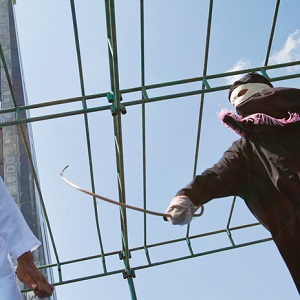Indonesian clerics issue fatwa against gays

Clerics in Indonesia have called for the death penalty to be imposed on people who have gay sex.
The top Muslim clerical group in the country, The Indonesian Ulema Council (MUI), issued the fatwa in order to remind people that homosexuality is “deviant sexual behaviour”. Being gay is not illegal in most of Indonesia, which has the world’s largest Muslim population, but it is still largely unwelcoming to gay people.
Hasanuddin A.F., the head of the MUI’s fatwa commission, told The Jakarta Globe: “Sodomy, homosexuals, gays and lesbians in Islamic law are forbidden and [it] is a vile act that is punishable by the death penalty.
“It doesn’t matter that they love each other. The law still prohibits it. In Islamic law, it’s a sexual act that must be heavily punished. It would be bad if the government allows same-sex marriage.”
Palembang in South Sumatra classes homosexuality as prostitution, for which the punishment is six months in jail. The Aceh province, where Shariah Law is practised, punishes gay sex with 100 lashes.
Activist Hartoyo said: “Issuing such a fatwa is as same as promoting hatred and motivating people to carry out violence against others. If the MUI dislikes homosexuals, it should express its disapproval through other means, in educated and peaceful ways. It shouldn’t shroud its message with hate and violence.”
Haris Azhar, the coordinator of the Commission for Missing Persons and Victims of Violence,said: “Homosexuality isn’t a crime, nor it is a deviant thing. It is merely one’s preference and it’s private. Besides, it isn’t the duty of MUI to determine national law. The MUI is supposed to educate Indonesia’s Muslims. Proposing severe punishment shows the MUI’s less-than-mature mind-set.
“As a Muslim, I appreciate the MUI’s efforts in issuing the fatwa. But, again, as a Muslim, I stand against the fatwa because I have the right to express myself and my preferences as long as it doesn’t infringe on the rights of others.”

